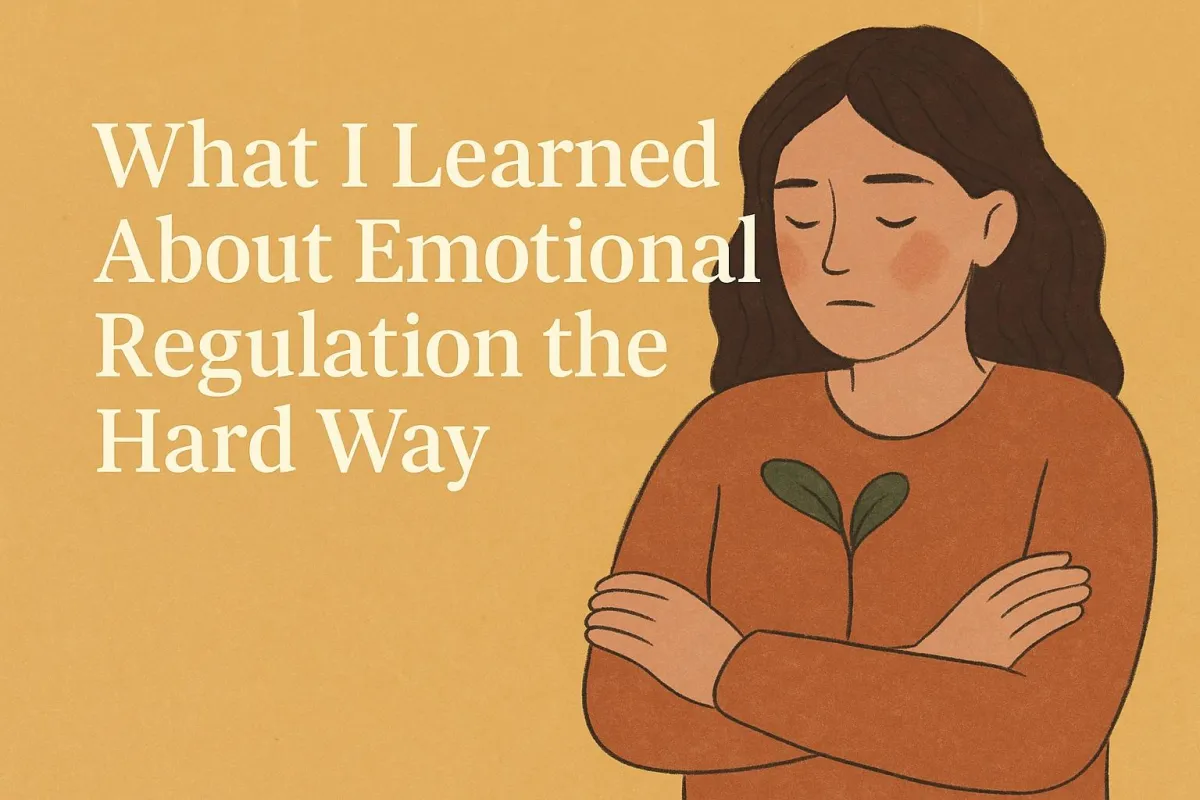
What I Learned About Emotional Regulation the Hard Way
What I Learned About Emotional Regulation
Growing up in my household, emotions weren’t spoken about.
They weren’t named. They weren’t welcomed.
And if they were expressed? They could be used against you.
So I learned early to shut myself off.
I didn’t allow myself to feel anything—not sadness, not anger, not joy.
I became quiet. Watchful. My job was to observe, stay small, and try to predict the next move of the adults in the room.
At 18, I moved out of the home I’d grown up in and began the slow, messy process of turning my emotions back on.
It wasn’t freeing—it was flooding.
I was overwhelmed by years of buried feelings I didn’t know how to process—especially anger.
I lashed out at anyone who tried to help.
Anyone who suggested I wasn’t coping well.
Anyone who hinted that I might need to learn how to communicate differently.
Then I learned about ACES—Adverse Childhood Experiences—and it hit me hard.
My score wasn’t zero.
My score was nine.
Suddenly, so much made sense.
That score included things like emotional neglect, household substance abuse, and chronic unpredictability.
There are experiences I’ve worked years to even name out loud—let alone process.
I don’t share that number to shock anyone.
I share it because if you’re carrying things too, you’re not alone.
And there is a way forward.
Becoming a parent made that clear to me:
If I didn’t find a way to name my emotions, to process my past, and to develop real coping skills—I’d pass it all on.
And I couldn’t let that happen.
I couldn’t let the cycle continue.
That’s why I began creating emotional tools—for myself, and now, for the children I teach and the one I’m raising.
Naming emotions didn’t come naturally to me.
But it can come early—and gently—for our kids, if we give them the tools.
If you grew up feeling like emotions were something to hide, to swallow, or to survive—you’re not alone.
But you get to do things differently now.
You get to name what was unnamed.
You get to show your children that their feelings are safe, speakable, and valid.
And maybe, just maybe, along the way... you’ll learn to make space for your own.
You can be the one who breaks the cycle. Gently. Quietly. Daily. That’s more than enough.
